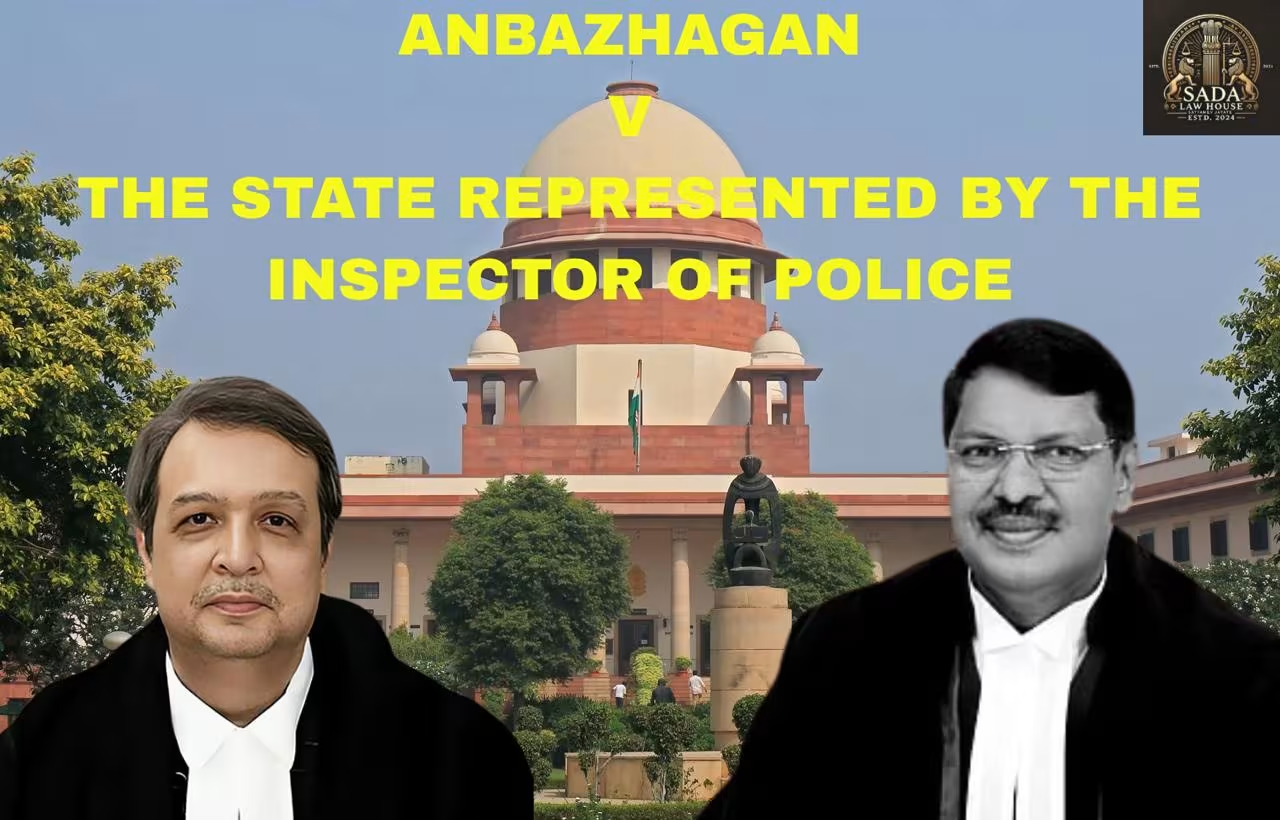Anbazhagan v. State (2023): Supreme Court Modifies Conviction to Culpable Homicide under Section 304 Part II IPC
- NISHA KUMARI
- Sep 29, 2025

Introduction
The case of Anbazhagan v. The State, decided by the Supreme Court of India on 20 July 2023, involved a criminal appeal challenging a conviction under Section 304 Part I of the Indian Penal Code (IPC).
The appellant, Anbazhagan, was convicted for causing the death of his neighbor during a spontaneous quarrel involving a dispute over land access. The Supreme Court re-evaluated whether the act constituted culpable homicide with intent, or merely with knowledge of likely death, thereby altering the conviction from Part I to Section 304 Part II of the IPC.
Facts of the Case
Parties Involved
Appellant: Anbazhagan
Respondent: The State, represented by the Inspector of Police
Background of the Incident
A land access dispute between Anbazhagan and his neighbor escalated into a physical confrontation. During a heated verbal exchange, Anbazhagan struck the neighbor on the head with a hoe, a farming tool. The blow was delivered spontaneously and without prior planning. The victim later succumbed to the injury.
Legal Proceedings
FIR Registered: Under Section 302 IPC (murder)
Sessions Court Judgment: Convicted under Section 304 Part I IPC
High Court: Upheld the conviction and sentence
Supreme Court Appeal: Anbazhagan argued that he lacked intent to kill and sought conviction under Section 304 Part II
Legal Issue
Was the act committed by Anbazhagan a culpable homicide with intent (under Section 304 Part I IPC), or a case of culpable homicide with knowledge (under Section 304 Part II IPC)?
The central question revolved around the presence or absence of mens rea—the mental state or intention behind the act.
Supreme Court Judgment
In its 2023 judgment ([2023] INSC 632), the bench comprising Justice B.R. Gavai and Justice J.B. Pardiwala allowed the appeal in part.
Key Observations
The altercation was sudden and unpremeditated.
There was no evidence of an intent to kill.
The act was committed with the knowledge that it could result in death.
Modified Conviction
The Court held that the appropriate section was Section 304 Part II IPC, which applies when an act is committed knowingly but without the intention to cause death.
Sentence
The Supreme Court reduced the sentence to five years of rigorous imprisonment, replacing the more severe punishment under Part I of Section 304 IPC.
Conclusion
The Supreme Court of India carefully evaluated the nuances of intent vs. knowledge in this criminal appeal. It concluded that Anbazhagan’s actions lacked the intent to kill, and instead fell within the purview of culpable homicide not amounting to murder under Section 304 Part II IPC.
By modifying the conviction and sentence, the Court balanced justice with the circumstantial nature of the offense—emphasizing that not all fatalities arising from altercations should attract the harshest penalties if mens rea is absent.
Case Laws






